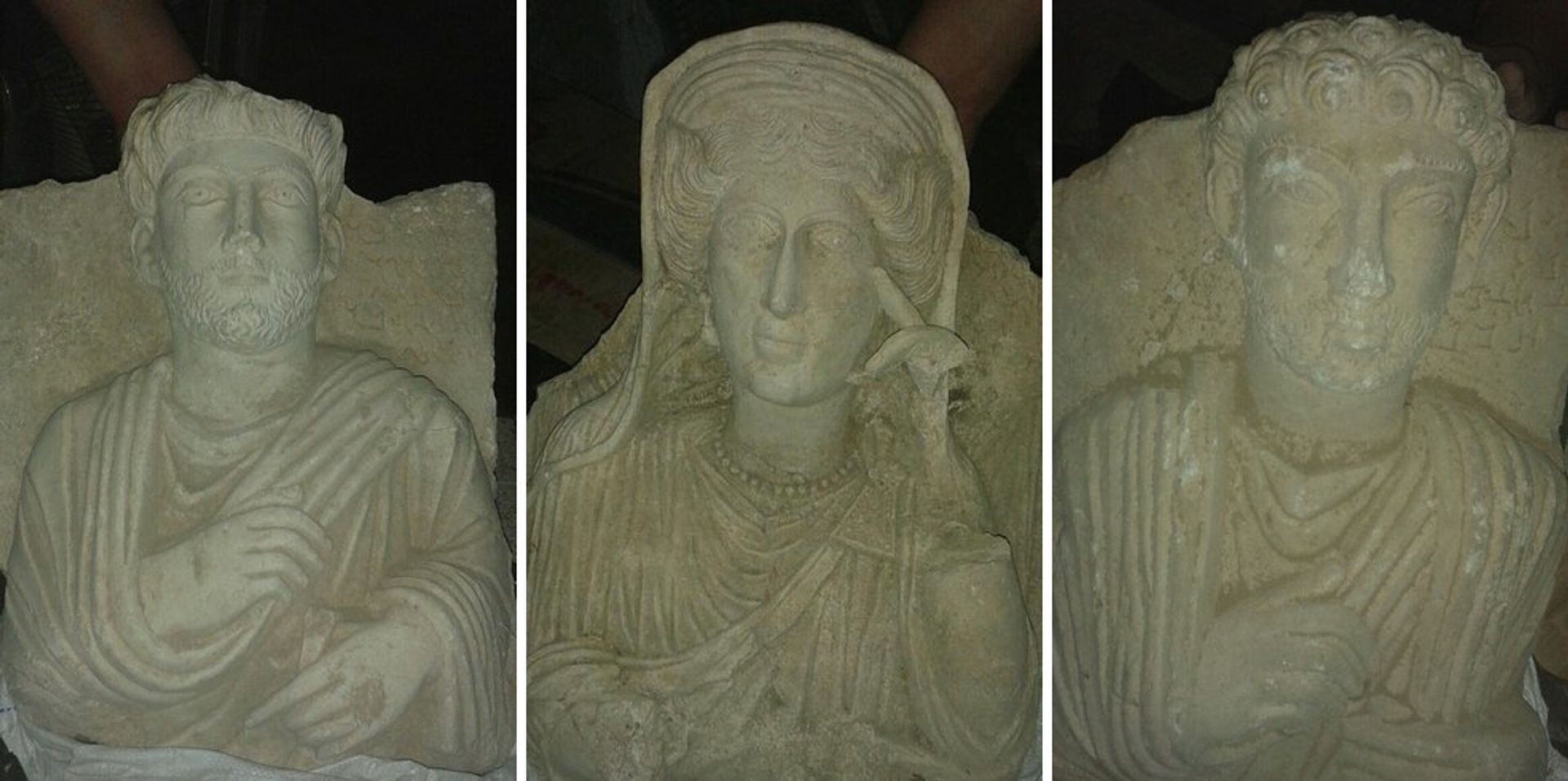How are stolen antiquities being smuggled out of Syria? How much does Islamic State (Isis) profit from this illegal trade? Can we do anything to stop it? These were some of the questions broached by investigators and scholars at a symposium on art and terrorism co-organised by the Association for Research into Crimes against Art (Arca) held at the Courtauld Institute of Art in London last Saturday, 27 February.
Mike Giglio, an investigative journalist with Buzzfeed who spends much of his time reporting from Turkey’s 560-mile border along Syria, has witnessed firsthand the steady stream of objects smuggled out of the war-torn country. The border is long, porous and difficult to control, Giglio said, and some guards are involved in the trade. But he warned against demonising the people who dig for artefacts in Syria and then smuggle them out. “It’s a sign of the desperation of the people affected by the conflict… they see artefacts buried in the ground as their ticket out of their current hell.”
Giglio has seen major pieces pass through the border such as a Roman mosaic removed from the floor of an ancient villa and taken out of the country rolled up in a carpet. On another occasion, a source showed Giglio photographs of several Roman portrait bust sculptures from Palmyra. However major objects such as these are the exception. “Some of my contacts have sold things for a few hundred dollars, or even a few thousand dollars, but what really drives this business are the really small transactions which take place constantly rather than the big-ticket items,” Giglio said, adding that many of the objects coming out of Syria are fake.

Isis themselves appear to be “focussed on coins because coins are the easiest thing to sell internationally. Currency was meant to circulate so coins could have been found anywhere and the guidelines for provenance on coins is not as stringent as it is for everything else,” Giglio said.
The black market for smuggled antiquities has been around far longer than Isis and is not restricted to them now, Giglio said. Every armed group in Syria is involved. “We focus on Isis so much because they want us to and also because the US government wants us to as well, because we’re at war; it’s propaganda from both sides.”
This kind of misinformation is a major problem, said Sam Hardy of the American University of Rome, who tracks the illicit sale of antiquities online. We do not know how much Isis is profiting from this trade because there is no hard evidence. “I compiled all the different numerical claims that have been made about trafficking objects out of Syria. I am 99% sure that all of them are wrong.”
Michael Will, the manager of the Organised Crime Networks Group at Europol, the European Union’s law enforcement agency, went further. “We have no evidence that Isis is selling antiquites to fund its activities,” he said. Any estimate of what Isis is making from this trade is likely to be a pure fabrication, several speakers said. Nevertheless anecdotal evidence suggests that Isis have professionalised the illicit trade in antiquities by instituting a system of licences that must be obtained by diggers operating in territory it controls, Giglio said.
As objects change hands along the illicit network travelling from the Middle East to Europe and beyond, they escalate in price. It is the “powerful international players” who profit from this trade, not the impoverished Syrians supplying the goods, Giglio said. “One of my contacts was on a coin sale website and he was upset. He keeps seeing objects that he handled on the Turkish-Syrian border resold on websites like that but for a huge mark up. So now he’s planning to move to Europe to do the same work,” Giglio said.
Francesco Rutelli, the former Italian minister of culture and former mayor of Rome, accused international art dealers and collectors of encouraging the “bloody” trade in illicitly-removed artefacts. “Collectors desire to own for themselves what belongs to all humankind,” he said.
The way to combat this trade on the ground is to provide sustainable development and to change the life opportunities for people who are involved, Sam Hardy said. In Mali, West Africa, the problem of looting has been decreased by 75% using this twin approach, he added.
In Syria, the damage the illicit trade is doing cannot be overstated. “With the business of illicit antiquities we can see the lasting damage the war is doing to the people of Syria, their collective psyche and their shared history. What we call Syria is disappearing building by building, refugee by refugee, artefact by artefact,” Giglio said.

